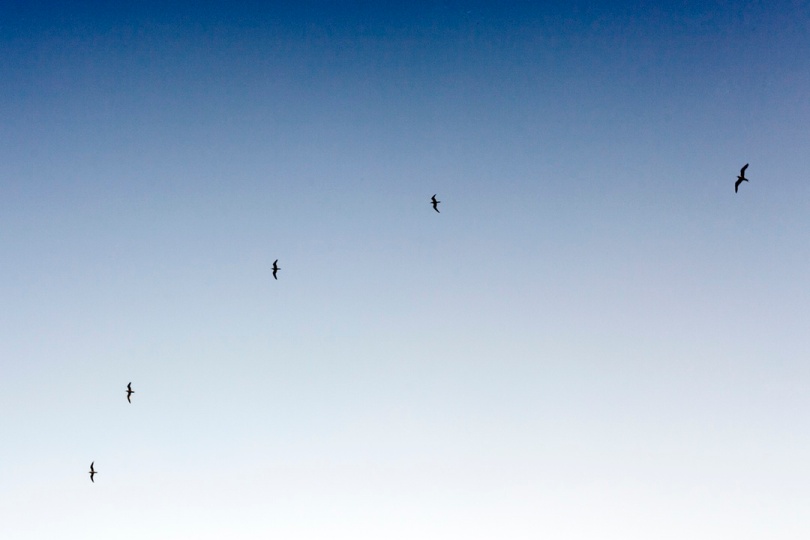Il caso svela i suoi trucchi.
Tira fuori dalla manica un bicchiere di cognac,
e ci mette a sedere sopra Henryk.
Entro nel bistrò e resto di stucco.
Henryk non è altri che
il fratello del marito di Agnieszka,
e Agnieszka è parente
del cognato di zia Zosia.
Parlando è venuto fuori un bisnonno in comune.
Fra le dita del caso lo spazio
si srotola e arrotola,
si allarga e si restringe.
Un attimo fa era una tovaglia,
ed è già un fazzoletto.
Indovina chi ho incontrato,
e dove, in Canada,
e dopo tutti questi anni.
Pensavo fosse morto,
ed eccolo là, su una Mercedes.
Sull’aereo per Atene.
Nello stadio a Tokyo.
Il caso gira fra le mani un caleidoscopio.
Vi luccicano miliardi di vetrini colorati.
E d’un tratto il vetrino di Hänsel
sbatte contro il vetrino di Gretel.
Figurati, nello stesso albergo.
Faccia a faccia nell’ascensore.
In un negozio di giocattoli.
All’angolo fra la via Szewska e la Jagiallonska.
Il caso è avvolto in un mantello.
Vi si perdono e ritrovano cose.
Mi ci sono imbattuta senza volerlo.
Mi sono chinata e ho raccolto.
Guardo, ed era un cucchiaio
di quel servizio rubato.
Non fosse stato per il braccialetto,
non avrei riconosciuto Ola,
e quell’orologio l’ho trovato a Plock.
Il caso ci guarda a fondo negli occhi.
La testa comincia a farsi pesante.
Ci si chiudono le palpebre.
Ci vien voglia di ridere e piangere,
è davvero incredibile –
dalla quarta B a quella nave,
deve esserci un senso.
Ci vien voglia di gridare:
com’è piccolo il mondo,
com’è facile afferrarlo
a braccia aperte!
E per un attimo ancora ci colma una gioia
raggiante e illusoria.
(Traduzione di Pietro Marchesani)
The Seance
Chance shows her tricks.
She pulls a glass of cognac from her sleeve
and seats Henry on it.
I enter the bar and stand dumbfounded.
It’s Henry and no one else
than the brother of Agnes’ husband,
and Agnes is a relative
of Sophie’s aunt’s brother-in-law.
It turned out that we have a great grandfather in common.
Space in the fingers of fortune
expands and contracts,
lengthens and shortens.
It was just a tablecloth
and now it’s like a handkerchief.
Guess whom I met,
and where, in Canada,
anf after how many years!
I thought he was no longer living,
and he’s in a Mercedes.
Or on a plane to Athens.
Or in a stadium in Tokyo.
Chance turns a kaleidoscope in her hands.
Billions of colored glass particles flash.
Suddenly Hansel’s piece of glass
crashes with Gretel’s.
Imagine, in the same hotel.
Face to face in the elevator.
In the toy shop.
At the corner of Szewska and Jagiellonska Streets.
Chance is wrapped in the cape.
Things are lost and found again.
I came across something involuntarily.
I bent down and picked it up.
I look, and it’s that spoon
from a stolen set.
If it weren’t for the bracelet
I would not have recognized Ola,
and I happened on that clock in Plock.
Chance gazes deeply into our eyes.
Our heads begin to get heavy.
Our eyelids droop.
We feel like laughing and weeping,
for it’s incredible —
from the fourth B on this ship,
there must be something to it.
We feel like screaming
how small the world is,
how easy to grasp
with open arms.
For a short while yet we are filled with joy,
both illuminating and deceiving.
(Translated from Polish by Walter Whipple)
_______________________________________






